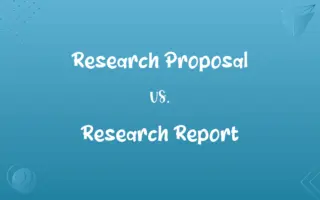Ubuntu vs. Windows 7: What's the Difference?
Edited by Janet White || By Harlon Moss || Updated on October 12, 2023
Ubuntu is a free, Linux-based OS, while Windows 7 is a paid, widely-used OS developed by Microsoft.

Key Differences
Ubuntu and Windows 7 each offer a distinct operating environment for users, wherein Ubuntu, rooted in the Linux kernel, provides an open-source platform facilitating extensive customization and community-based support. In parallel, Windows 7, developed by Microsoft, propounds a proprietary operating system, marrying user-friendly interfaces with robust commercial support, thus contrasting in foundational philosophies and operational accessibility vis-à-vis Ubuntu.
In the realm of user interface and experience, Ubuntu presents a clean, relatively streamlined design through its GNOME desktop environment, prioritizing simplicity and ease of access. Contrarily, Windows 7, adorned with its characteristic Aero features, champions a graphically rich interface, accented by transparent window borders and intuitive navigation, delineating a stark aesthetic and functional dichotomy against the backdrop of Ubuntu's minimalism.
From a security standpoint, Ubuntu typically garners acclaim for its inherently secure architecture, grounded in Linux, and further bolstered by a smaller user base, thereby drawing fewer cyber threats. Conversely, Windows 7, embodying a more ubiquitous OS, inherently attracts a larger volume of malicious attacks, though mitigated by frequent security updates, unveiling a disparate security landscape in comparison to Ubuntu.
Addressing software compatibility and availability, Ubuntu might encounter limitations concerning compatibility with popular software and games, often necessitating alternative programs or emulation software for utilization. Inversely, Windows 7 enjoys expansive software compatibility, supported by a vast array of developers, thereby establishing a divergent software ecosystem when juxtaposed against Ubuntu.
Considering system resource utilization, Ubuntu is often celebrated for its lower system requirements and efficient resource utilization, enabling operability on a diverse range of system specifications. Windows 7, while engineered to run on a variety of hardware, can demand higher resource allocation for optimal functionality, illuminating disparate system requirements and operational efficacies relative to Ubuntu.
ADVERTISEMENT
Comparison Chart
Basis/Origin
Open-source, Linux-based OS.
Proprietary OS developed by Microsoft.
User Interface
Typically uses a GNOME desktop environment.
Utilizes the Aero user interface.
Security
Renowned for high security due to Linux base.
Known for being a larger target for malware.
Software Compatibility
May have limitations with popular software/games.
Enjoys wide-ranging software compatibility.
System Requirements
Known for lower system requirements.
Can demand higher resource allocation for optimal use.
ADVERTISEMENT
Ubuntu and Windows 7 Definitions
Ubuntu
Ubuntu offers a secure computing environment, attributed to its Linux foundation.
Due to its intrinsic security features, Ubuntu is often utilized for server management.
Windows 7
Windows 7 is a popular operating system developed by Microsoft.
Windows 7 became renowned for its user-friendly interface and robust functionality.
Ubuntu
Ubuntu is recognized for its user-friendly and minimalistic interface.
The clean design of Ubuntu's desktop environment is appreciated by users who prefer simplicity.
Windows 7
Windows 7 is known for its widespread software and hardware compatibility.
Users could easily find and install their preferred software on Windows 7 due to its extensive compatibility.
Ubuntu
Ubuntu is a widely-used, Linux-based, open-source operating system.
Many developers prefer Ubuntu for its robust security and extensive customizability.
Windows 7
Windows 7 was lauded for providing improved performance over its predecessors.
Upon its release, many users upgraded to Windows 7 to benefit from its optimized performance and speed.
Ubuntu
Ubuntu operates with low system requirements, providing efficient resource utilization.
Ubuntu can rejuvenate older computers, thanks to its modest system resource demands.
Windows 7
Windows 7 marked a significant evolution in Microsoft’s OS design and functionality.
The advent of Windows 7 was celebrated for addressing and improving upon limitations of previous Windows iterations.
Ubuntu
Ubuntu facilitates extensive user customization, offering control over system aspects.
Utilizing Ubuntu, users can deeply personalize their operating system to meet specific needs.
Windows 7
Windows 7 introduced the Aero user interface, enhancing visual aesthetics and navigation.
The Aero features in Windows 7 provided users with a graphically rich and intuitive desktop experience.
Ubuntu
A philosophical doctrine or approach to life that emphasizes social unity and generosity of spirit.
Ubuntu
(South Africa) A Nguni Bantu ideology focusing on people's allegiances and relations with each other.
FAQs
What is Ubuntu?
Ubuntu is a free, open-source, Linux-based operating system.
Which operating system has higher system requirements, Ubuntu or Windows 7?
Generally, Windows 7 has higher system requirements compared to Ubuntu.
How is security managed in Windows 7?
Windows 7 has built-in security features but is no longer updated with security patches from Microsoft.
What defines Windows 7?
Windows 7 is a proprietary operating system developed by Microsoft.
How does Ubuntu's user interface compare to Windows 7?
Ubuntu typically employs a GNOME desktop environment, while Windows 7 uses the Aero user interface.
Which OS, Ubuntu or Windows 7, is more commonly used for servers?
Ubuntu is more commonly used for servers due to its stability and security features.
Can I customize the user interface in Ubuntu?
Yes, Ubuntu allows extensive customization of its user interface.
Is Windows 7 still supported by Microsoft?
No, Microsoft officially ended support for Windows 7 in January 2020.
Can Ubuntu run Windows applications?
Not natively, but Ubuntu can run Windows applications using compatibility layers or emulators like Wine.
Is Ubuntu user-friendly for beginners?
While it may have a learning curve for some, Ubuntu is praised for its user-friendly interface and community support.
What are the primary user interface elements in Windows 7?
Windows 7 introduced the Aero interface, with features like Aero Peek, Aero Snap, and transparent window borders.
How does file system management differ between Windows 7 and Ubuntu?
Ubuntu typically uses the ext4 file system, while Windows 7 commonly uses NTFS.
Does Windows 7 offer virtual desktop features?
Not natively, but third-party applications can add virtual desktop features to Windows 7.
Which is more popular for desktop use, Ubuntu or Windows 7?
Historically, Windows 7 has enjoyed more widespread use globally among desktop users compared to Ubuntu.
How does software compatibility compare between Ubuntu and Windows 7?
Windows 7 generally offers broader compatibility with popular software and games compared to Ubuntu.
Is Ubuntu open-source?
Yes, Ubuntu is an open-source operating system.
How do software costs generally compare between Windows 7 and Ubuntu?
Ubuntu, being open-source, generally has more free software options available than Windows 7.
What is the primary programming philosophy behind Ubuntu?
Ubuntu emphasizes open-source development, community involvement, and free software distribution.
Can Windows 7 run Linux applications?
Not natively, but it can run Linux applications using a Windows Subsystem for Linux or a virtual machine.
How is system security maintained in Ubuntu?
Ubuntu benefits from regular security patches and updates, as well as inherent security features of the Linux kernel.
About Author
Written by
Harlon MossHarlon is a seasoned quality moderator and accomplished content writer for Difference Wiki. An alumnus of the prestigious University of California, he earned his degree in Computer Science. Leveraging his academic background, Harlon brings a meticulous and informed perspective to his work, ensuring content accuracy and excellence.
Edited by
Janet WhiteJanet White has been an esteemed writer and blogger for Difference Wiki. Holding a Master's degree in Science and Medical Journalism from the prestigious Boston University, she has consistently demonstrated her expertise and passion for her field. When she's not immersed in her work, Janet relishes her time exercising, delving into a good book, and cherishing moments with friends and family.






































































